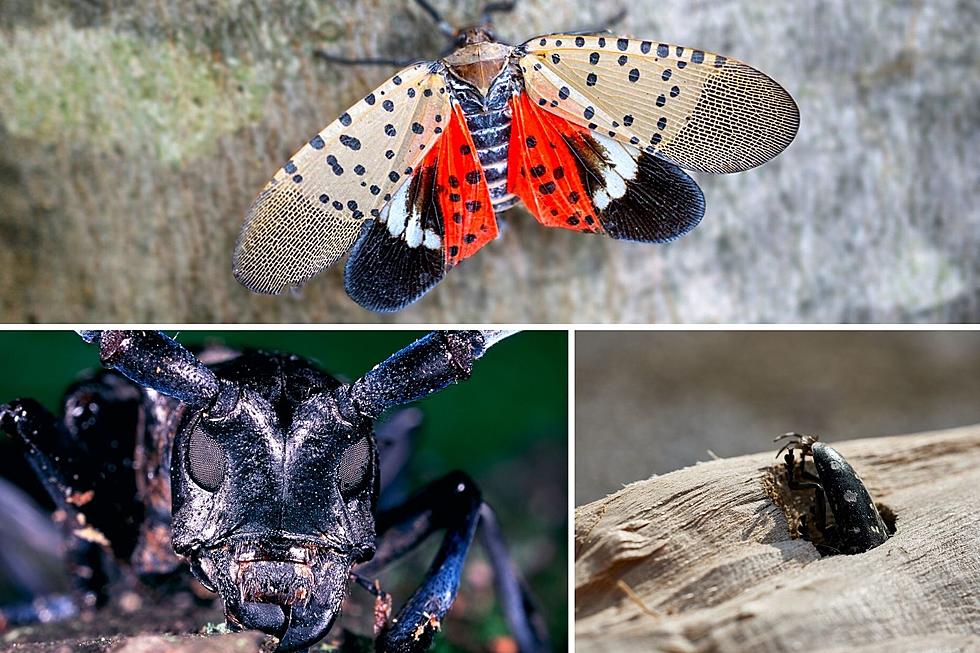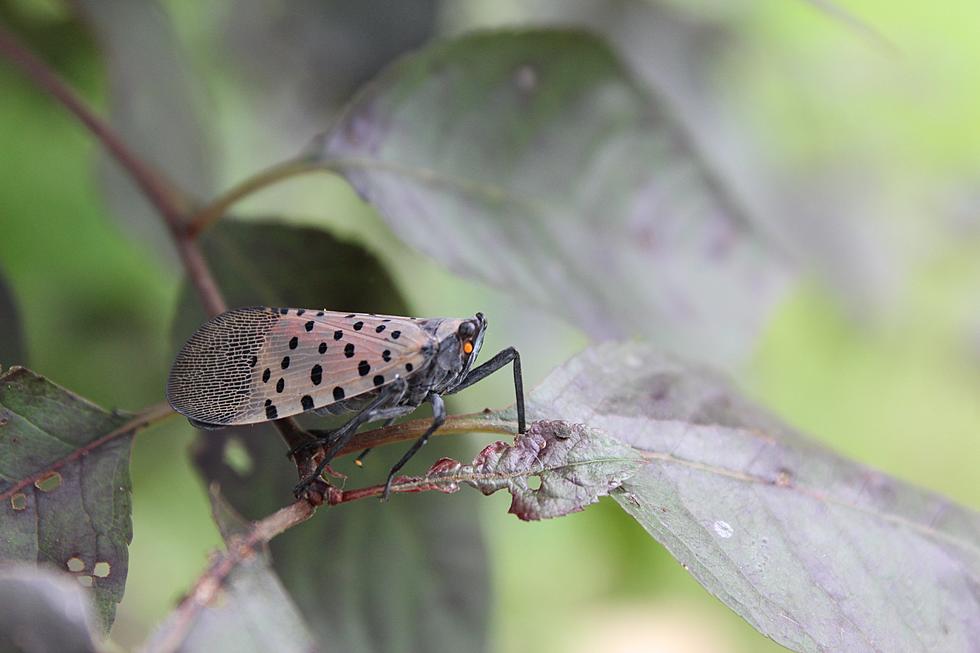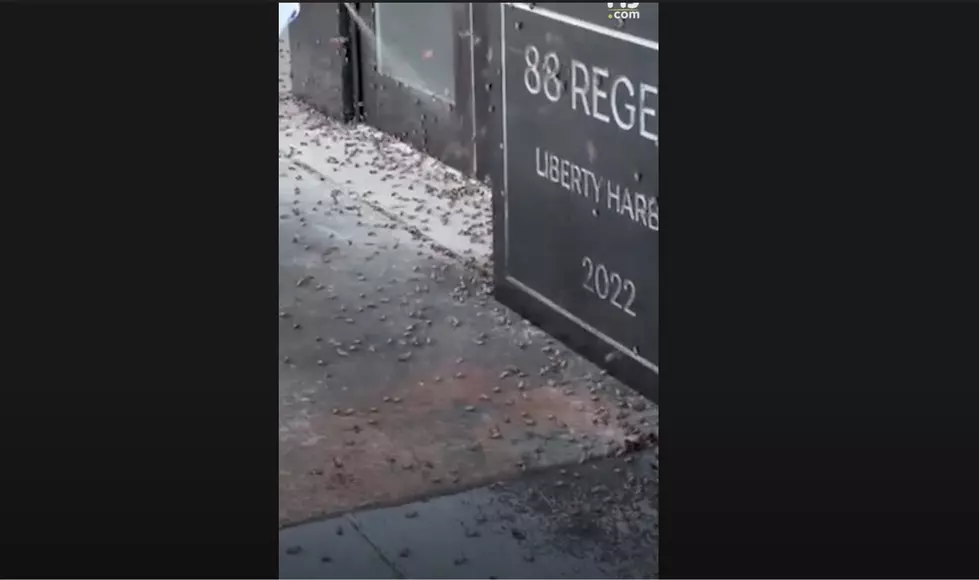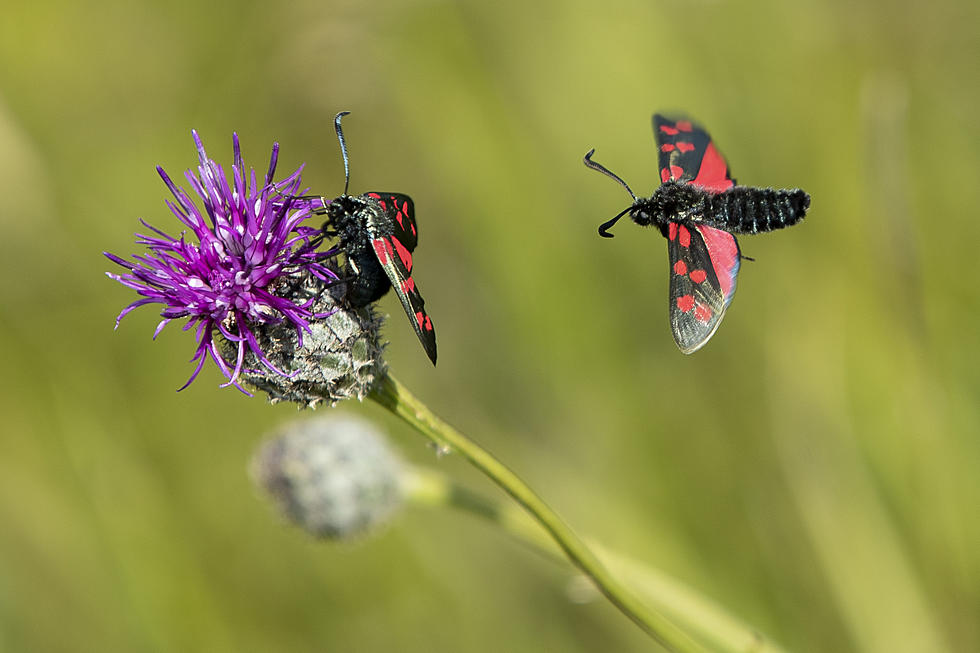
Alright, NJ: Squash These 5 Bugs Immediately On Sight
Let's talk about bugs, New Jersey! Which ones give you the heebee jeebies? Are there any that make your skin crawl? If you're somebody that gets nauseous from a mere glance at a creepy crawler, then I can probably place a safe bet that says you won't be the one making sure these pests meet their sticky ends.
Or, maybe you hate them so much that you will? Who knows? If you can stomach it, there are actually five insects that the United States Department of Agriculture says New Jersey residents should kill as soon as you see them.

You might be thinking that it's cruel to kill a harmless bug. That's the thing, though. While they may be harmless to humans, they're anything but harmless to our ecosystems and environment. Some of the bugs on our list have the potential to destroy forestry and vegetation. Obviously, that's something we want to prevent moving forward.
The five bugs you NEED to step on the second you see them are:
1.) The Asian Longhorned Beetle
New Jersey's home to plenty of forests. They're what is at risk should they get invaded by this beetle. The Asian Longhorned Beetle usually infests hardwood trees by infiltrating them through things like firewood, wood debris, branches, stumps, and logs.
2.) Emerald Ash Borer Beetle
If you're not on the lookout for these bad boys, they can really wreak havoc on New Jersey's Ash trees. According to the government's Animal and Plant Health Inspection Service, an infestation of Emerald Ash Beetles can destroy a tree in just three years. Nobody wants that to be the destiny of the Ash trees here in the Garden State.
3. ) Flighted Spongy Moth Complex
Large infestations of this kind of moth, according to the USDA, can defoliate hundreds if not THOUSANDS of trees. The fear here is that if that were to become a reality, it could cause death in quite a few sections of the various forests within the state.
4.) Khapra Beetle
Now, we're dealing with a pest that thrives on our food supply. The most at-risk for infestations from the Khapra Beetle are storages of wheat, grain, and rice products.
5.) Spotted Lanternfly
We're all too familiar with the harm posed by the spotted lanternfly here in the Garden State. Believe it or not, if these things spread out too far throughout the country, they could severely impact the grape, orchard, and logging industries here in the U.S. NO BUENO!
Find out more about the invasive species you need to keep an eye out for here in the Garden State HERE.
Source: Aphis.USDA.org
New Jersey Towns Hit Hard By Spotted Lantern Fly
7 reasons why you need to kill the spotted lanternflies infesting NJ
What to know about the spotted lanternfly and the tree of heaven in New Jersey
More From 94.5 PST










